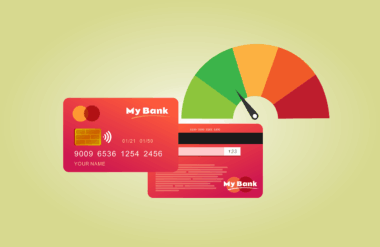Incorporating Behavioral Data in Credit Scoring Models
In the evolving landscape of credit management, incorporating behavioral data into credit scoring models emerges as a revolutionary strategy. Traditional credit scoring primarily relies on financial history and credit reports, which may not provide a comprehensive view of a borrower’s creditworthiness. Behavioral data offers insights into an individual’s spending habits, saving patterns, and even social influences. By analyzing factors like transaction frequency and spending categories, financial institutions can obtain a richer, more nuanced picture of potential borrowers. This integration allows lenders to make informed decisions based on real-time behavioral indicators. Moreover, it helps mitigate risks associated with lending while ultimately providing access to credit for those who may have been overlooked due to strict traditional metrics. The real challenge lies in effectively harnessing this data to ensure accuracy and compliance with regulations. Additionally, data privacy remains an important consideration, necessitating transparency in how consumer data is collected and utilized. Overall, behavioral data can enhance scoring models while fostering better financial inclusivity. As this trend gains momentum, the financial industry must adapt to leverage these insights effectively, positioning itself for sustainable growth in a competitive market.
The use of behavioral data in credit scoring models is particularly significant given the limitations of conventional metrics. Traditional scoring systems often overlook individuals with limited credit histories or those from diverse socioeconomic backgrounds. Incorporating behavioral data aims to address these gaps, showcasing the true financial behavior of potential borrowers. For instance, consumers who regularly attend financial literacy workshops or demonstrate responsible budgeting can be recognized for their efforts, allowing them greater access to credit. Furthermore, utilizing advanced analytics platforms can enable lenders to mine vast datasets for meaningful insights. Technologies such as machine learning and big data analytics can streamline this process, identifying patterns and trends that elude conventional methods. By implementing such technologies, financial institutions can make quicker and more accurate assessments of creditworthiness. This approach not only promotes financial inclusivity but also helps in reducing default rates, thus benefiting both consumers and lenders. However, ensuring that these models are fair and unbiased is crucial. Ongoing evaluation and refinement of scoring algorithms are essential steps in maintaining ethical practices and promoting trust in the financial system. As we continue to innovate, the potential for behavioral data in credit scoring is tremendous.
Benefits of Using Behavioral Data
Integrating behavioral data into credit scoring models offers numerous benefits for both borrowers and lenders. One of the most significant advantages is the ability to identify low-risk borrowers who may not have a strong traditional credit score. For example, an individual may demonstrate consistent bill payments and punctual loan repayments but lack extensive credit history. By analyzing their behavioral patterns, lenders can better understand their reliability. Additionally, this approach contributes to financial inclusion, allowing a broader range of individuals to access credit facilities. It empowers lenders to offer tailored financial products that meet the specific needs of diverse borrowers. Another notable benefit is the potential for enhanced decision-making capabilities. Data-driven insights enable financial institutions to create more accurate risk assessments, allowing them to price loans appropriately while managing risk effectively. Furthermore, these insights can lead to reduced costs in underwriting processes, as automated analyses eliminate some of the manual checks traditionally required. Overall, the transition towards incorporating behavioral data signifies a progressive movement within the credit management space, paving the way for more innovative lending practices and mutually beneficial relationships between lenders and borrowers.
However, the effective implementation of behavioral data in credit scoring models is not without its challenges. One significant hurdle involves ensuring data privacy and security. As lenders collect and analyze various behavioral data points, they must adhere to stringent regulations regarding consumer data protection. Compliance with laws, such as GDPR and CCPA, requires transparency in data collection practices. Consumers must be informed about how their data will be used, and they should have the ability to opt out if desired. Additionally, the accuracy of behavioral data poses another challenge. Relying on potentially flawed data can lead to skewed scoring outcomes, placing financial institutions at risk. Therefore, developing sophisticated models that integrate comprehensive datasets and employ advanced analytical techniques becomes paramount. Moreover, the potential for algorithmic bias must be continuously monitored. Biases in data selection or interpretation can lead to unfair scoring practices and exacerbate existing inequalities. As lenders navigate these challenges, collaboration with technology partners and data scientists can provide necessary expertise, ensuring that models remain effective, secure, and equitable in their applications within the credit landscape. Addressing these concerns is vital for the sustainable growth of this emerging trend.
Future Implications of Behavioral Data in Credit Scoring
Looking ahead, the integration of behavioral data in credit scoring models holds substantial promise for transforming the credit management landscape. As technology continues to evolve, we may see the development of more sophisticated algorithms capable of analyzing vast amounts of data in real-time. These advancements could lead to quicker credit decisions, reducing the lag time currently experienced in approval processes. Additionally, financial institutions will increasingly emphasize personalized lending experiences, tailoring products to better fit individual consumer profiles based on their behavioral insights. This could foster deeper relationships between lenders and borrowers, encouraging financial literacy and responsible credit usage. Furthermore, assessing behavioral patterns over time can allow for dynamic scoring models that adjust an individual’s credit standing based on their evolving behavior rather than static historical records. This shift could motivate consumers to maintain responsible financial habits, ultimately fostering healthier credit ecosystems. However, as we adapt to these changes, ongoing research and collaboration within the industry will be critical to ensure ethical practices persist. Maintaining consumer trust while harnessing the power of behavioral data is crucial for the successful future of credit scoring models.
Moreover, as behavioral data becomes more prevalent in credit scoring models, it is essential for financial institutions to invest in developing the necessary infrastructure. Establishing platforms that can effectively gather and analyze complex datasets will be vital for successful integration. Data management systems must be robust to handle diverse data types, ensuring seamless access and analysis. Staff training will also play a pivotal role, equipping employees with the knowledge and skills to interpret behavioral data accurately. A data-driven culture must be cultivated within organizations, emphasizing its importance in informed decision-making. Collaboration with third-party vendors who specialize in behavioral analytics can further enhance capabilities, providing valuable insights and tools for lenders. Additionally, as consumer attitudes evolve, financial institutions may need to rethink their communication strategies. Educating consumers about the shift towards behavioral data usage can alleviate concerns and promote confidence in their lending practices. Transparency and clarity regarding data collection will be instrumental in establishing trusting relationships. The future promises significant advancements as the integration of behavioral data revolutionizes credit scoring, encouraging responsible lending practices.
Conclusion
In conclusion, the incorporation of behavioral data into credit scoring models presents a transformative opportunity for the financial sector. By moving beyond traditional credit metrics, lenders can gain deeper insights into borrower behavior, fostering inclusivity and personalized lending experiences. This innovative approach not only enhances risk assessments but also helps identify deserving individuals who may otherwise be overlooked. As we look to the future, addressing the associated challenges such as data privacy, algorithmic bias, and the establishment of robust infrastructures will be crucial. Collaboration between financial institutions, technology partners, and regulatory bodies will pave the way for ethical integration practices. Through continuous refinement and evaluation of these models, the financial industry can adapt to rapidly changing consumer behaviors, ensuring fairness and accuracy. As behavioral data increasingly influences credit scoring, it will reshape the lending landscape, offering opportunities for both consumers and lenders alike. Ultimately, this paradigm shift will not only improve credit accessibility but also promote a culture of responsible financial behavior. The journey towards these transformative advancements in credit scoring has only just begun, promising a more equitable future for all stakeholders involved.
As we witness the unfolding of these changes, it is imperative for all stakeholders in the financial sector to embrace this evolution. Embracing data-driven strategies is no longer optional; it is essential for sustained competitiveness. Credit scoring models that integrate behavioral data are not just a trend; they reflect a necessary adaptation to a rapidly changing market landscape. Financial institutions must commit to ongoing research and development, staying abreast of advancements in analytics and technology. By investing in innovative solutions, lenders can improve their credit decisioning processes, ultimately benefiting all parties involved. The future of credit management lies in the ability to effectively harness advanced data insights while maintaining ethical practices. As behavioral data continues to reshape the credit scoring paradigm, it is vital to foster dialogue within the industry, share best practices, and support regulatory compliance. Only through collective efforts can the financial ecosystem evolve to meet the demands of an increasingly diverse and dynamic consumer base. Emphasizing collaboration and ethical standards will be pivotal in determining the long-term success of credit scoring models that incorporate behavioral data. The transformative potential is vast, paving the way for a more inclusive financial future.





